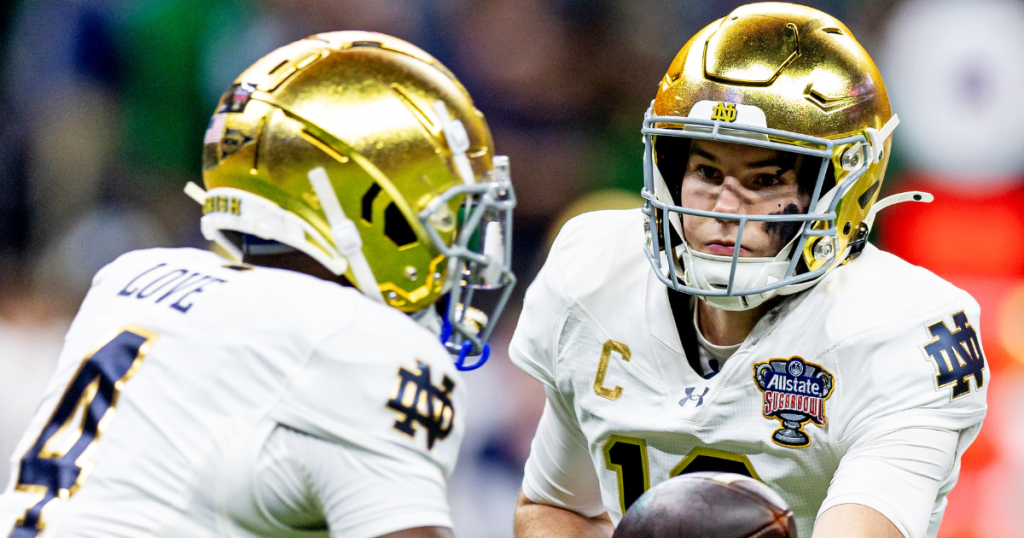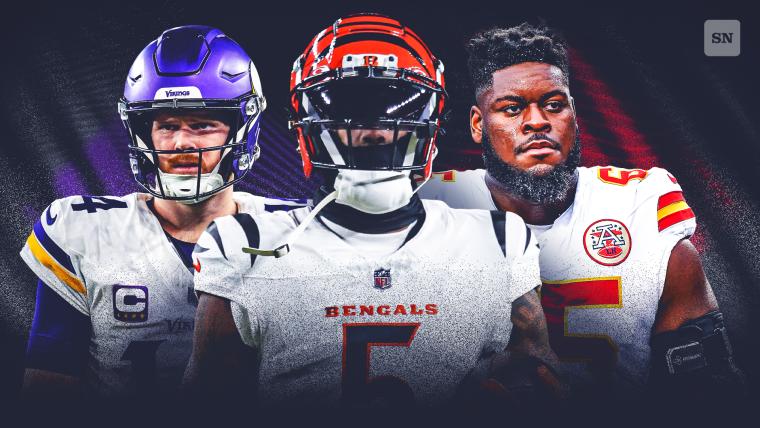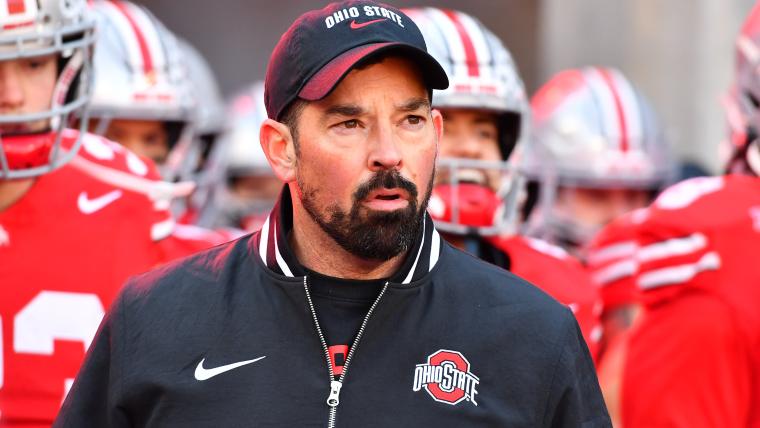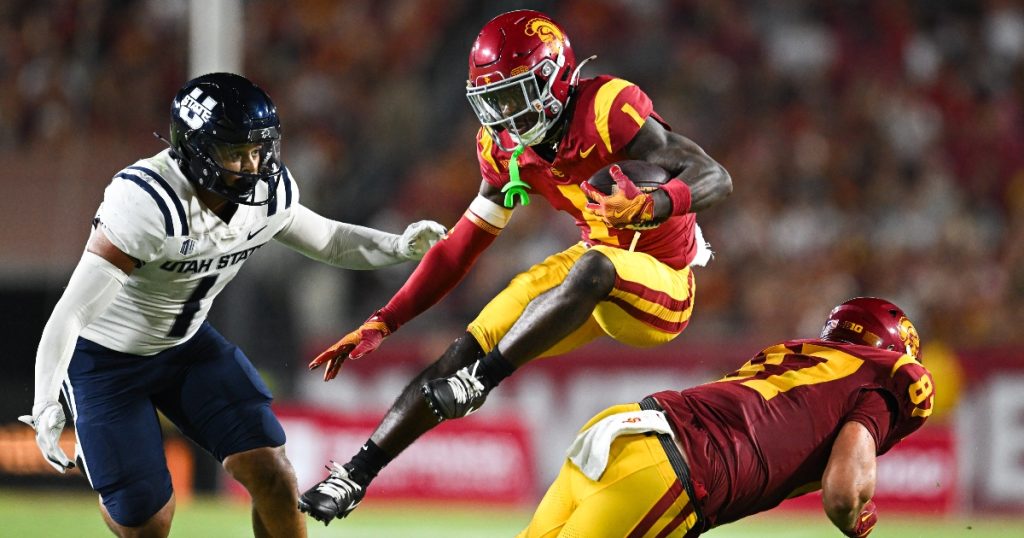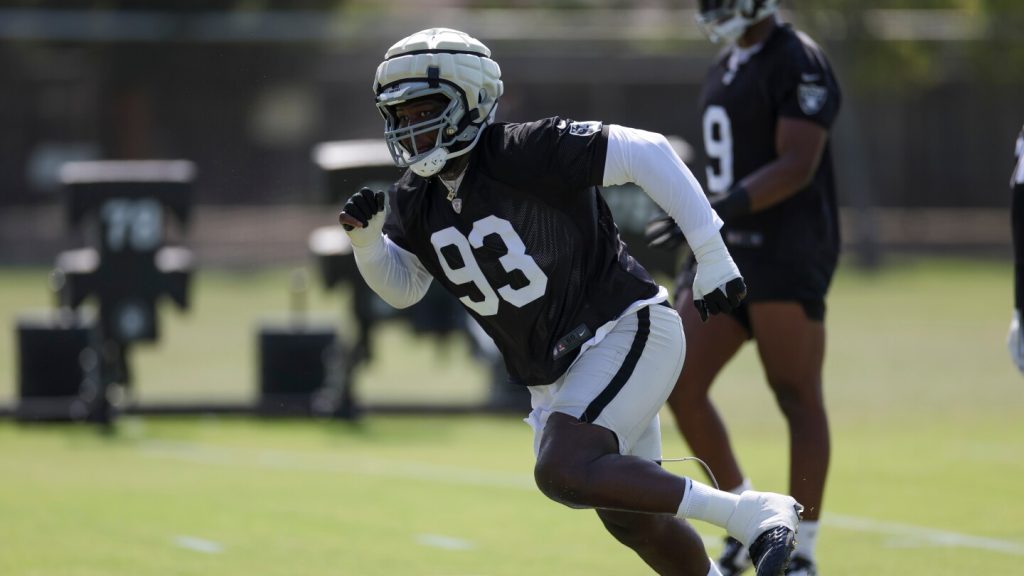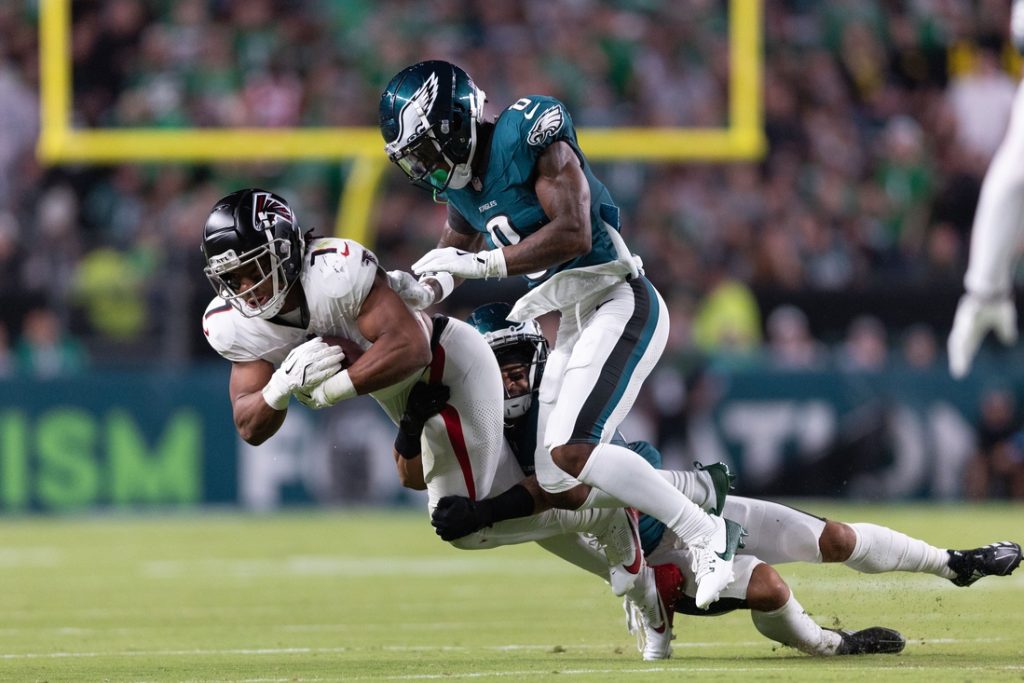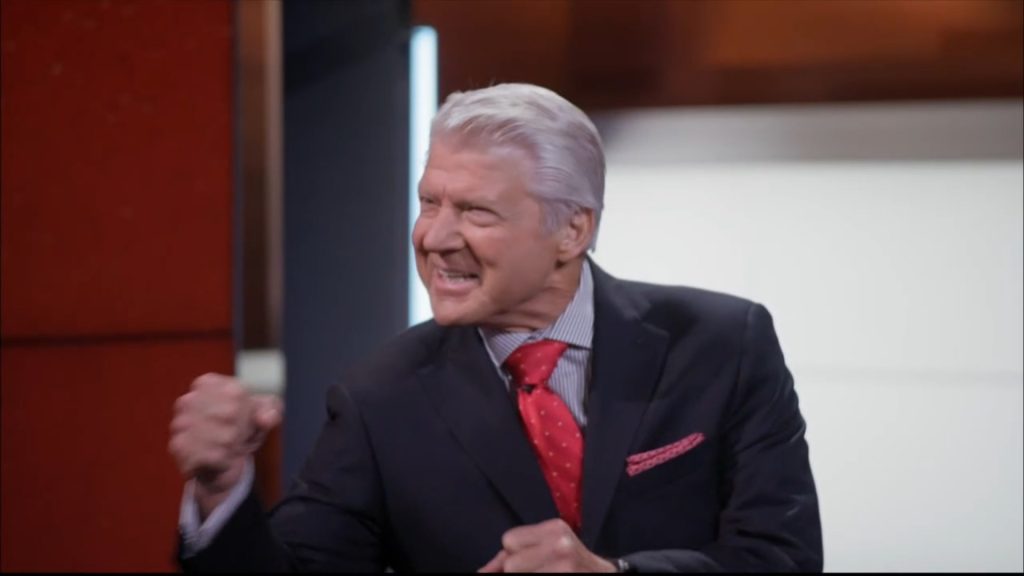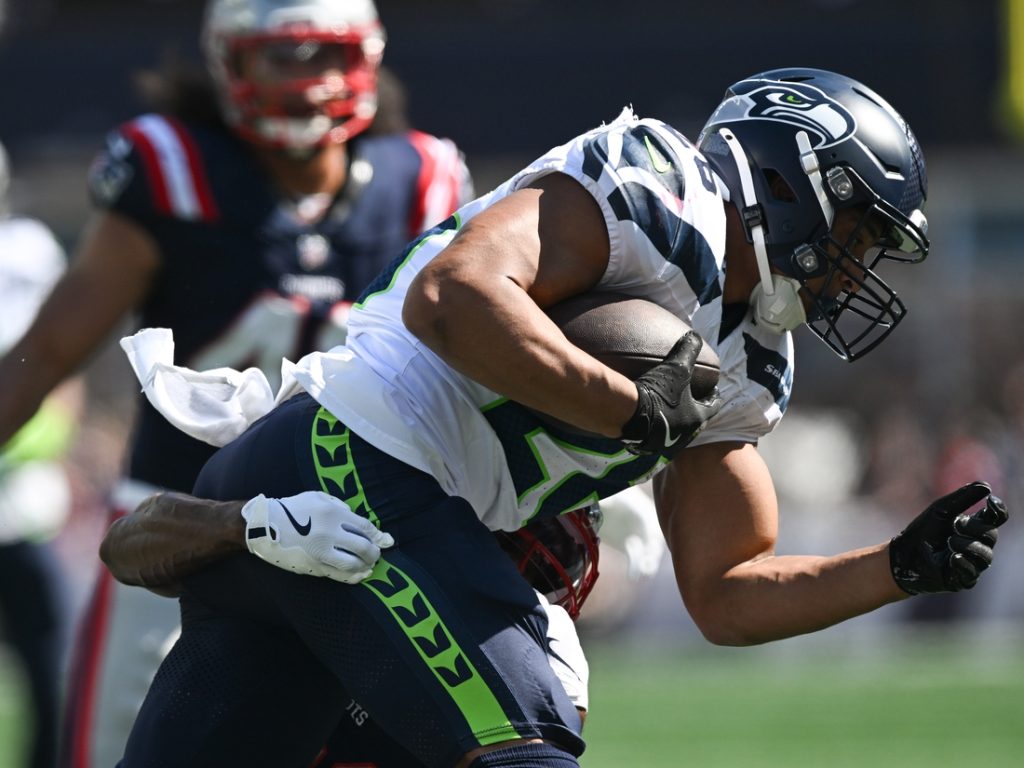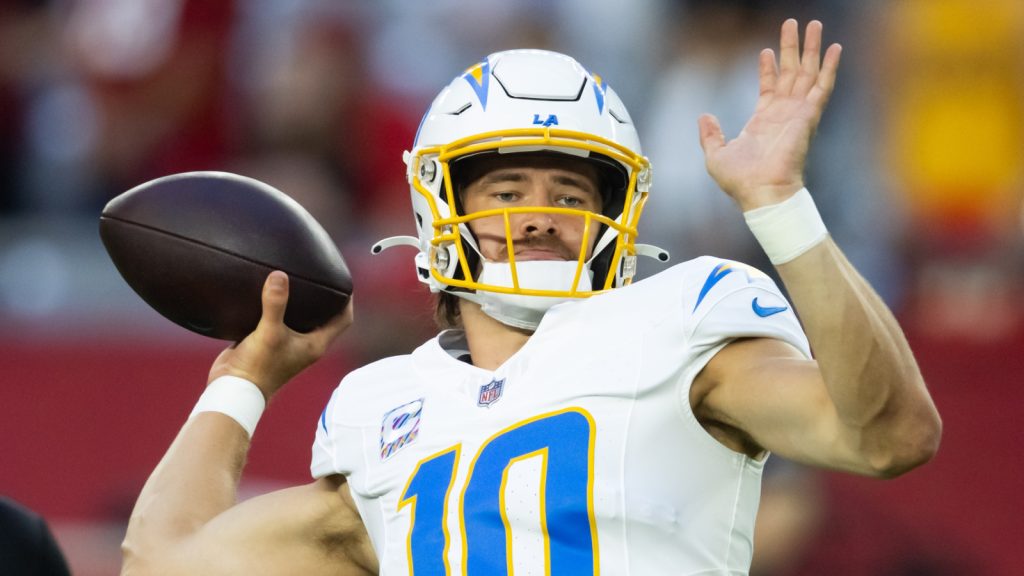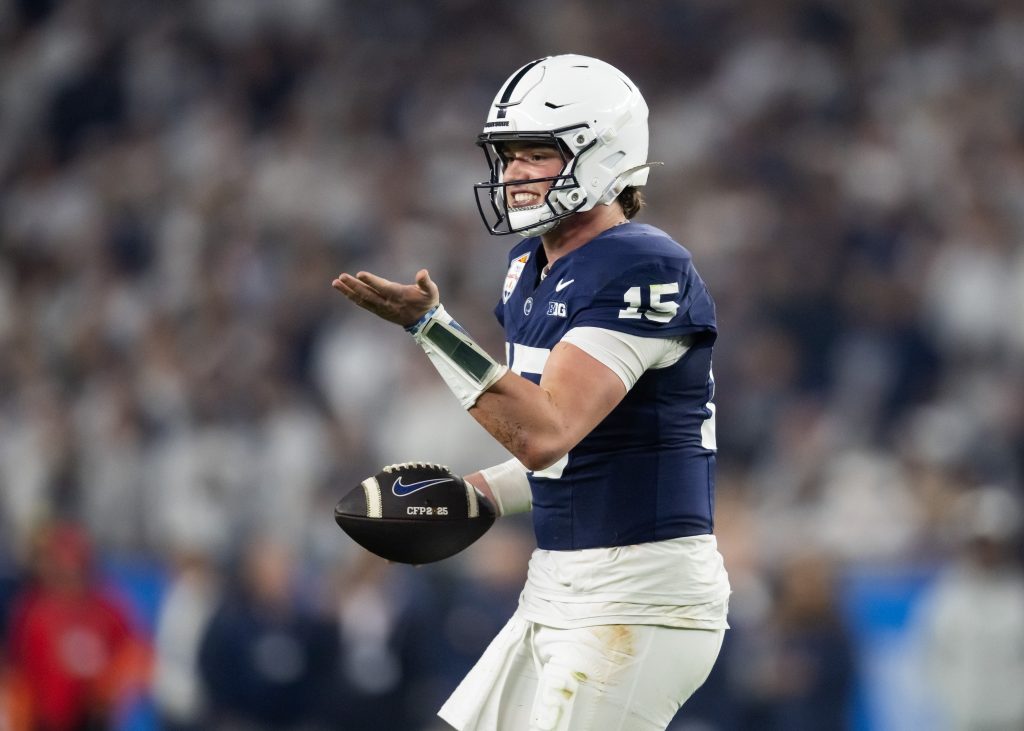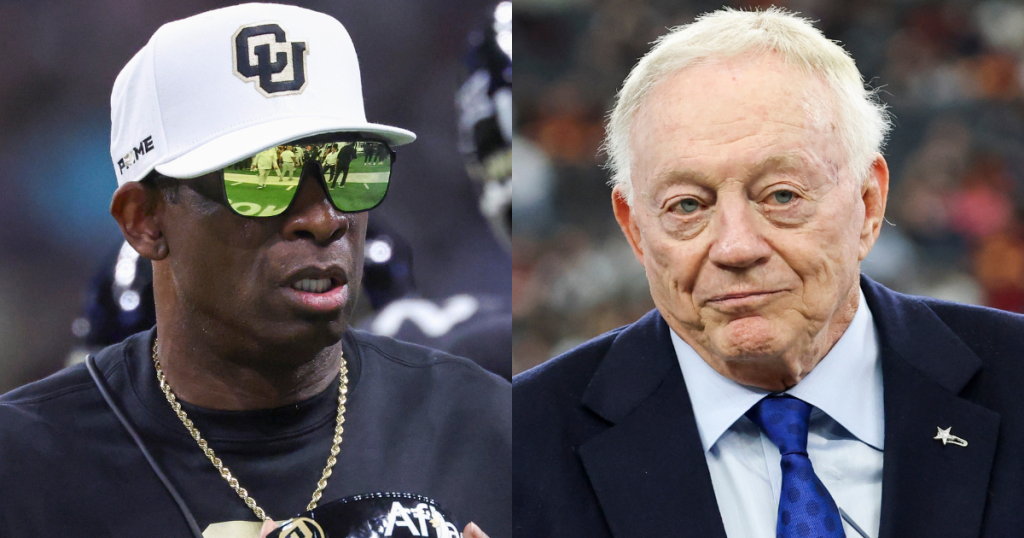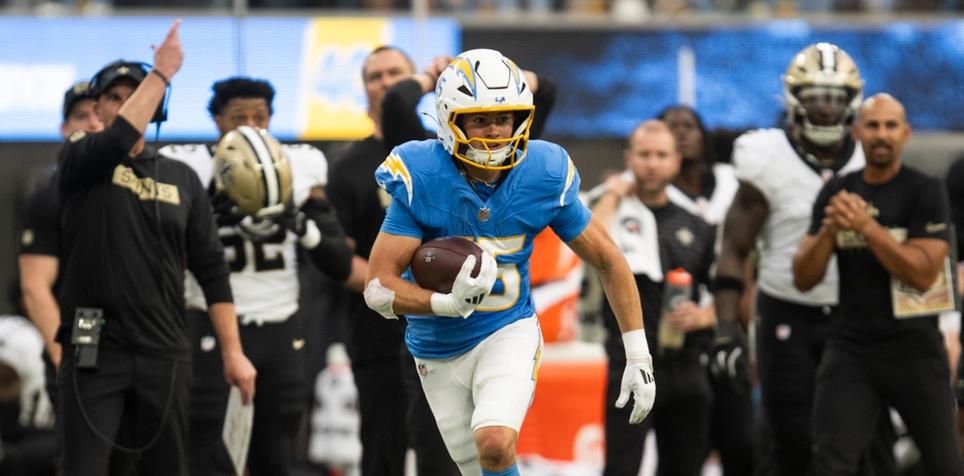After a turbulent first half in the Orange Bowl, the focus shifted to Riley Leonard, the Notre Dame quarterback who left the game with an injury. His exit came after a punishing hit, leaving fans and teammates anxious about his status. As the Fighting Irish faced off against Penn State, the stakes were high, and Leonard’s performance had been a crucial part of their strategy.
Freeman’s Update on Leonard
At halftime, Marcus Freeman, head coach of Notre Dame, addressed Leonard’s situation. While he didn’t have definitive news, he reassured everyone that Leonard would be evaluated during the break. “They’re going to check him out right now,” Freeman told ESPN’s Molly McGrath. “They just told me right before the field goal, they don’t have an answer right now, what it’s gonna be.” The uncertainty loomed large as the team prepared for the second half.
Impact of Leonard’s Departure
Leonard’s absence was felt immediately. Before leaving the field, he had completed 6 of 11 passes for 63 yards and thrown one interception. Additionally, he had five rushing attempts for seven yards. With Leonard sidelined, Steve Angeli stepped in as the replacement quarterback. Angeli quickly took charge, leading Notre Dame on a drive that culminated in a 41-yard field goal by Mitch Jeter, narrowing the score to 10-3 in favor of Penn State.
But what does this mean for the Fighting Irish? If Leonard cannot return, Freeman indicated that the game plan would remain largely unchanged, despite Angeli being more of a pocket passer. “The game plan will still be the same,” Freeman stated. “We’ll have less quarterback-designed runs. We’re confident in Steve if Steve has to go. If Riley can go, we’re confident in Riley.”
Penn State’s Dominance in the First Half
The first half showcased Penn State’s strength, particularly in their running game. They outgained Notre Dame 141-15 on the ground, with the dynamic duo of Kaytron Allen and Nick Singleton leading the charge. Allen rushed for 63 yards while Singleton added 52 yards and scored the game’s only touchdown. Their ability to control the ground game put immense pressure on Notre Dame’s defense, which struggled to tackle effectively and contain the rushing attack.
Freeman’s Call for Improvement
Freeman emphasized the need for his team to step up, particularly in tackling and run defense. “We’ve just got to be able to run the ball. We’ve got to run the ball and we’ve got to stop the run. That’s what we’re not doing right now,” he explained. The coach’s frustration was evident as he noted, “They’re rushing better than we’re tackling, and we’ve got to get that fixed.”
With the game hanging in the balance, the Fighting Irish needed to regroup and refocus. The second half would be crucial, not just for the outcome of the game but for the morale of the team.
The Road Ahead for Notre Dame
As the teams prepared to return to the field, the question remained: Could Notre Dame find a way to rally without their starting quarterback? The coaching staff had faith in Angeli, but the team would need to adapt quickly. The run game, which had been a focal point of their strategy, would have to shift in Leonard’s absence.
Freeman’s confidence in both quarterbacks highlighted the depth of the Fighting Irish’s roster. However, the execution on the field would ultimately determine their fate. Would they be able to establish a strong ground game and improve their tackling to turn the tide in their favor?
The Importance of Team Resilience
In college football, resilience is key. Teams often face adversity, whether through injuries, tough opponents, or unexpected challenges. For Notre Dame, this game was a test of their character and resolve. The Fighting Irish had to rally together, support one another, and adapt to the circumstances at hand.
As the second half began, fans held their breath, hoping for a turnaround. Would Leonard be able to return? If not, could Angeli lead the team to victory? The answers would unfold on the field, where every play mattered and every decision could change the course of the game.
In the world of college football, the excitement is palpable. Each game is a story waiting to be told, filled with unexpected twists and turns. As Notre Dame faced off against Penn State, the stakes were high, and the outcome uncertain. But one thing was clear: the passion for the game and the determination to succeed would drive both teams forward.

